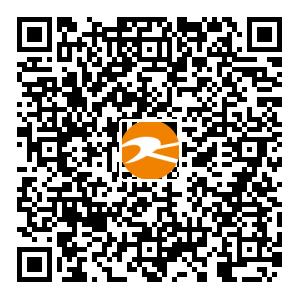2012年自考英语(一)语法基础考点三
现以动词tell为例,将各种人称数和时态的被动语态列表如下:
| 一般现在时 | I +am He(She)+ is + told You(We,They)+ are |
| 一般过去时 | + told I(He,She)+ was We(You,They)+ were |
| 一般将来时 | +be told I (We)+will(shall) You (He,She,They)+ will |
| 过去将来时 | + be told I(We)+ should You(He,She,They)+ would |
| 现在完成时 | + been told I(We,You,They)+ have He(She)+ has |
| 过去完成时 | I(You,He,She,+ had + been + told We,You,They) |
| 现在进行时 | I +am He(She)+ is + being told You(We,They)+ are |
| 过去进行时 | I(He,She)+ was+ being told We(You,They)+ were |
1、用法
(1)一般现在时
A statement of owners' equity is frequently prepared to accompany the balance sheet and income statement. 通常编写所有者权益表随同资产负债表和收益表。
All our shoes are made by hand. 我厂出品的鞋都是手工制造的。
The article is retailed at a higher price than when it was bought wholesale. 物品的零售价高于购进时的批发价。
(2)一般过去时
She was praised for her economical management of the budget. 她因对预算的管理有方而被表扬。
An urgent telephone call was made to the company's treasure. 公司财务收到一个紧急电话。
(3)一般将来时
Your will be introduced to the office building. 将向您介绍办公大楼。
Will storekeepers be prosecuted for raising prices without government permission?店主会不会因未得到政府许可提价而被起诉?
(4)过去将来时
She told me that her father would be taken to hospital the next morning. 她告诉我第二天早晨她的父亲将被送到医院去。
(5)现在完成时
These trade terms have been developed by mercantile custom and standardized to a certain extent. 这些贸易条款是在商业惯例中形成并在一定程度上标准化了的。
The consumers should unlearn the propoganda with which they have been fed by the advertizers. 消费者应当摒弃广告商所作的广泛的宣传。
(6)过去完成时
They told him that the meeting had been cancelled. 他们告诉他会议已被取消。
(7)现在进行时
In some developed countries, children are being taught by computers. 在一些发达国家,孩子们的课程是用计算机讲授的。
Computers are being used to predict the weather. 计算机正被用来预测天气。
(8)过去进行时
The conversation was being recorded. 那时在对那次谈话进行录音。
The street was being widened. 街道那时在加宽。
The problem was being studied. 那时在研究这个问题。
(9)有两个宾语的主动结构变被动结构
We allowed them a commission of 5 per cent. 我们给他们5%的手续费。
① They were allowed a commission of 5 per cent.
② A commission of 5 per cent was allowed them by us.
We shall give Mr. John a warm welcome. 我们将热烈欢迎约翰先生。
① Mr. John will be given a warm welcome.
② A warm welcome will be given to Mr. John.
(10)动词不定式的被动结构
A new study plan(work plan)has to be made. 必须制定一个新的学习计划(工作计划)。
He will have to be tried for murder. 他因犯杀人罪将要受到审判。
The project is(going)to be completed in October. 这项工程将在十月份完工。
2、在英语中,被动语态用于下列场合:
(1)当我们不知道或者没有必要说明谁是动作的执行者时(这时都不用由by引起的短语)
My watch has been stolen. 我的表已被偷了。(不知道谁偷的)
On Saturday night,on her way home from work,she was robbed. 星期六晚上,在下班回家的路上,她被抢了。
(2)当我们要强调动作的承受者时
Qu Yuan is also remembered on this day. 也在这一天纪念屈原。
He will never be forgotten. 永远不会忘记他。
(3)当出于礼貌,措词等方面的考虑不愿说出谁是动作的执行者时,例如:
You are requested to give a performance. 请你表演一个节目。
3、主动句表示被动含义
(1)及物动词need,want,require,deserve,bear等之后用动名词的主动形式表示被动意义。
This issue requires dealing with great care. 该问题需仔细研究。
The new instruments want very careful handling. 这些新仪器必须轻拿轻放。
(2)动词find+名词含有被动意义,这时主语多为非生物。如:
Electronics finds its application in navigation. 电子学在航海上得到应用。
(3)在有些性质形容词后用动词不定式的主动形式表示被动意义。如:
Atom is too small to see. 原子小得看不见。
The question is easy to answer. 这个问题很容易回答。
(4)在形容词worth之后,用动名词的主动形式表示被动意义。如:
This book is worth reading. 这本书值得一读。
Three points are worth quoting for our purpose. 就我们的目的而言,有三点值得引证。
(5) get+过去分词表示被动意义。如:
This question got talked about a little. 该问题曾略加议论过。
(6)有些介词短语作表语或定语时,表示被动意义。如:
The question is under discussion. 问题正在讨论。
The phenomenon under study is very interesting. 在研究中的现象十分有趣。
| 1 | 2 | 3 |













